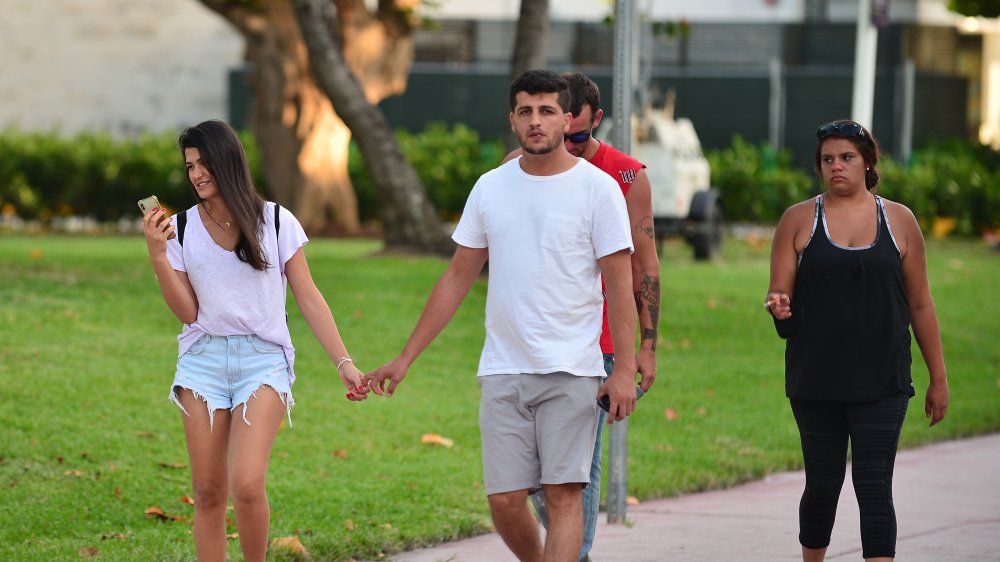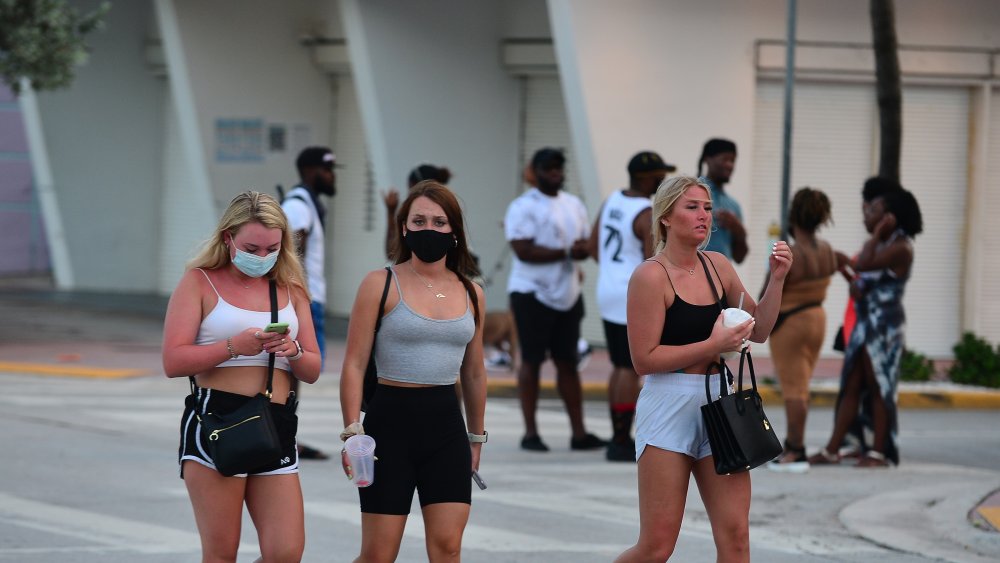Who's Really Exempt From Wearing A Face Mask?
These days, it's difficult to go on social media — or any media for that matter — without seeing clips of people throwing public tantrums after being told to wear a mask. Plus, it's been reported that there are groups issuing fraudulent "face mask exempt" cards from the Freedom to Breathe Agency, which promises prosecutions under the Americans with Disabilities Act if the cards are not honored (via ABC News). We've also heard all the arguments against mask wearing, including one that claims masks limit our oxygen and that there are pre-existing medical conditions that prevent someone from wearing a mask.
The CDC has made it clear that masks are "a critical tool in the fight against COVID-19 that could reduce the spread of the disease, particularly when used universally within communities. There is increasing evidence that cloth face coverings help prevent people who have COVID-19 from spreading the virus to others." But as JAMA points out, the CDC hasn't been clear on what medical exemptions should be made, only stating they can be made for "people with difficulty breathing." Let's face it, that's about as broad as it gets. And that's where part of the problem lies.
People with pre-existing conditions may benefit most from masks
California emergency physician Jim Keany notes that there are no medical conditions that would prevent someone from wearing a simple surgical or cloth face mask, since neither interfere with breathing (via Health). He points out that if you have trouble breathing while wearing a mask, you may not be wearing it correctly. "If you feel like you're sucking air through the mask, you are wearing the mask too tight. Simply look for a mask that has some stiffness to it, so that you don't suck it into your mouth [while breathing]," Keany advises. If masks are not an option, face shields are effective, too.
Instead of being a case for exemption, people who have difficulty breathing due to respiratory problems actually need masks more than others do since they're more at risk for illness. "People with underlying chronic lung disease, such as COPD or asthma, should be able to wear a non-N95 facial covering without it affecting their oxygen or carbon dioxide levels," Albert Rizzo, chief medical officer for the American Lung Association, tells ABC News. "Masks have no detrimental effects, even in patients with chronic lung disease."
In fact, he adds that there are very few instances where a person should be exempt. "People with supplemental oxygen or compromised respiratory status which become short of breath even when walking might meet criteria, which in that case, going out in public is a health risk to the person."
Wearing a mask places the community over the individual
At the end of the day, the problem some of us have with masks seems to have less to do with medical fact, and more to do with how we feel about being told what to do. "Many of us pride ourselves on our individualism. We want to make our own decisions, and stand out from the crowd," clinical psychologist Seth A. Gillihan writes in a blog post for WebMD. "Following collective orders like 'shelter in place' or 'wear masks when you can't social distance' might feel like giving up an essential part of our identity. This factor is especially prominent in Western societies, like the U.S., that place a premium on our individual identities."
JAMA is also urging doctors and clinicians to consider public health needs when they are asked to issue face mask exemptions. If someone isn't really able to tolerate a mask, then sheltering in place may be "a reasonable and safe medical recommendation" to make. Simply put, if you really struggle to wear a mask, you probably should consider staying safe at home.


